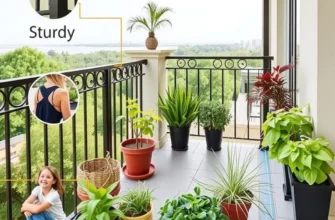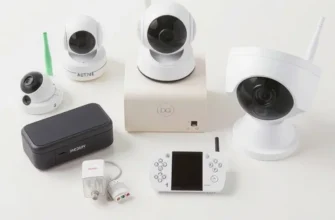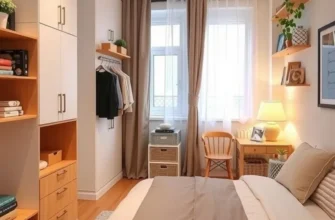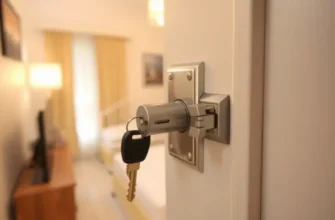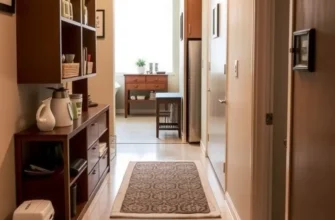Encountering a rodent in your apartment can be unsettling, especially when you prioritize a safe and inviting home environment. As a renter, you may feel limited in your ability to manage pest control, but there are effective and straightforward strategies you can adopt. Awareness, proactive measures, and timely action are essential to creating a rodent-free living space. This guide empowers renters like you with practical solutions that ensure safety and security while navigating the challenges that come with vermin. Understanding how to properly handle rodent issues in your apartment is not only about cleanliness; it’s also about protecting your health and peace of mind. With the right information and tools, preventing and managing rodent problems becomes a hassle-free part of apartment living.
Understanding Apartment Rodents

Rodents are among the most common pests that can invade your apartment. Knowing about these creatures, their behaviors, and how to identify their presence is key to keeping them at bay. The most frequently encountered rodents in apartments include mice and rats, each with distinct habits and traits.
Mice are small, agile, and can squeeze through openings as small as a dime. They’re nocturnal and prefer secluded areas where they can build nests from soft materials like paper or fabric. Signs of a mouse infestation include droppings, gnawed items, and the occasional scratching sound in walls or ceilings. Mice are curious and will explore new areas readily, which can make them more noticeable than other pests.
Rats are larger than mice and are usually more cautious, making them harder to spot. Known types include the Norway rat and the roof rat. Norway rats prefer ground-level spaces, while roof rats are excellent climbers and inhabit higher areas like attics. Both types leave behind greasy marks along their habitual runways, alongside droppings and gnaw marks. Rat infestations can damage property and pose serious health risks due to their ability to spread diseases.
Identifying a rodent problem early is crucial for effective management. The presence of droppings is often the first indicator, with rodent mice leaving smaller, scattered droppings and rats producing larger, darker ones. Chewed wires, bags, or food containers can also signify a rodent presence. Audible signs like squeaking or scampering noises in the walls frequently accompany these visual cues.
Apart from direct damage to property, rodents pose significant health risks. They can transmit diseases through their droppings, urine, or bites. They are infamous for spreading conditions like hantavirus and leptospirosis. Keeping food sealed, regular cleaning, and prompt waste disposal are essential preventive measures.
To further protect your home, it’s important to seal possible entry points. Mice and rats can enter through tiny gaps in doors, windows, or utility lines. By securing these potential access points, you can significantly reduce the likelihood of an infestation. Consult this guide on safe furniture anchoring to ensure that your efforts to block entries do not compromise the stability and safety of your interior elements.
Understanding these rodents and recognizing the signs of their presence enables you to act swiftly to prevent infestations. By staying informed and vigilant, you can maintain a safe, healthy, and rodent-free home environment.
Practical Solutions for Rodent Prevention
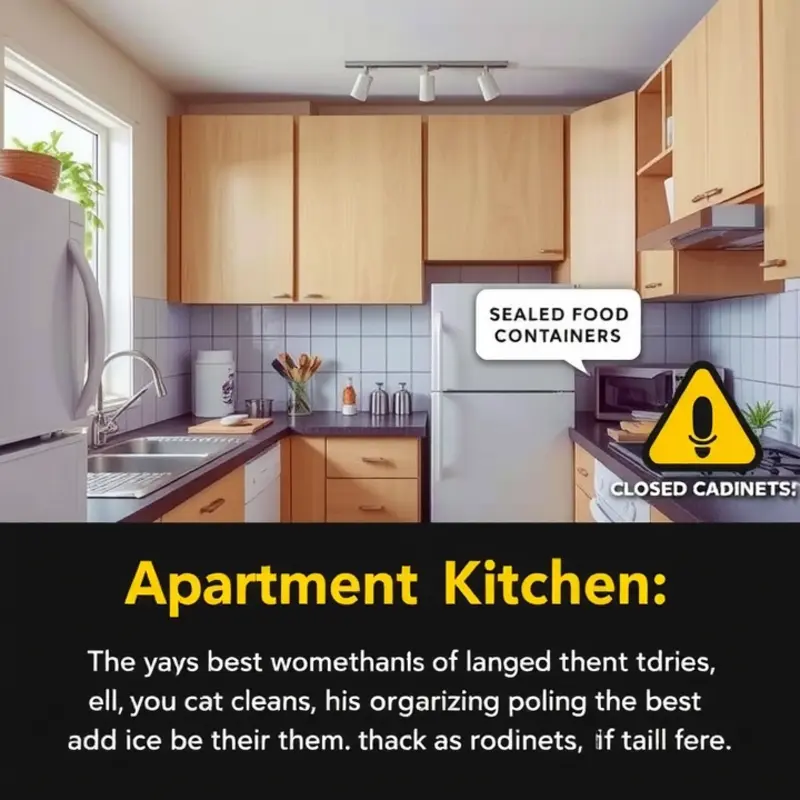
Creating a rodent-free apartment starts by sealing potential entry points. Inspect walls, floors, and baseboards for any cracks or gaps. Use sturdy materials like steel wool or caulk to block these openings. Rodents can squeeze through astonishingly small spaces, so thoroughness is key. Pay particular attention to areas around pipes, vents, and under sinks.
Maintaining cleanliness is crucial in deterring rodents. Ensure all food is stored in airtight containers. Keep countertops and floors free from crumbs and spills. Regularly empty trash bins, using ones with tight-fitting lids to prevent attracting pests. Vacuuming and mopping help remove food residues that might entice unwanted visitors.
In addition to cleanliness, decluttering is essential. Clutter provides hiding spaces for rodents. Organize storage areas and keep items off the floor. This not only makes the environment less inviting but also makes it easier to spot signs of rodent activity.
Consider setting traps in areas where you suspect rodent activity, like along walls or behind appliances. Traps should be placed perpendicular to the wall, with the trigger facing the baseboard. For safety, especially in homes with pets or children, opt for enclosed traps or place them in less accessible areas.
It’s important to involve your landlord or property manager in addressing larger rodent issues. Professional pest control services may be necessary, especially if there’s an overwhelming infestation. Most rental agreements oblige landlords to maintain pest-free premises, so open communication is crucial.
Furthermore, check your lease agreement to understand any pest control clauses. In some cases, the landlord may be responsible for regular pest maintenance. For more insights on lease-related concerns, visit our legal lease clauses guide.
Simple maintenance can also deter rodents. Fix leaky faucets and pipes promptly. Standing water can attract rodents, creating ideal environments for them. Regularly inspect and clean gutters and downspouts to prevent any potential entry points.
Lastly, discuss any rodent sightings or droppings with neighbors. Shared walls and ventilation systems mean rodents can move between apartments easily. A unified approach can help tackle the situation more effectively. Implementing these practical measures makes your space unwelcoming for rodents while ensuring a safe and pleasant living environment.
Final words
Dealing with rodents in your apartment can seem daunting, but with proactive measures and a little knowledge, you can successfully safeguard your home. Familiarizing yourself with the types of rodents and their behaviors helps you understand the importance of prevention. Regular maintenance and immediate reporting to your landlord about infestations will put you in a stronger position. Your peace of mind is paramount, and taking these careful steps will help you maintain a safe and comfortable living space. Remember, by staying vigilant and prepared, you ensure that your apartment remains a haven free from unwanted guests.


